Congratulations to all winners and all finalists in the 2024 Awards.
Thanks are due to our judges and to all those supporting the Awards including, AlphaGalileo, the Association of the British Pharmaceutical Industry (ABPI), Dr Katharine Giles Fund and The Royal Society.
Links to the winners work are provided where available.
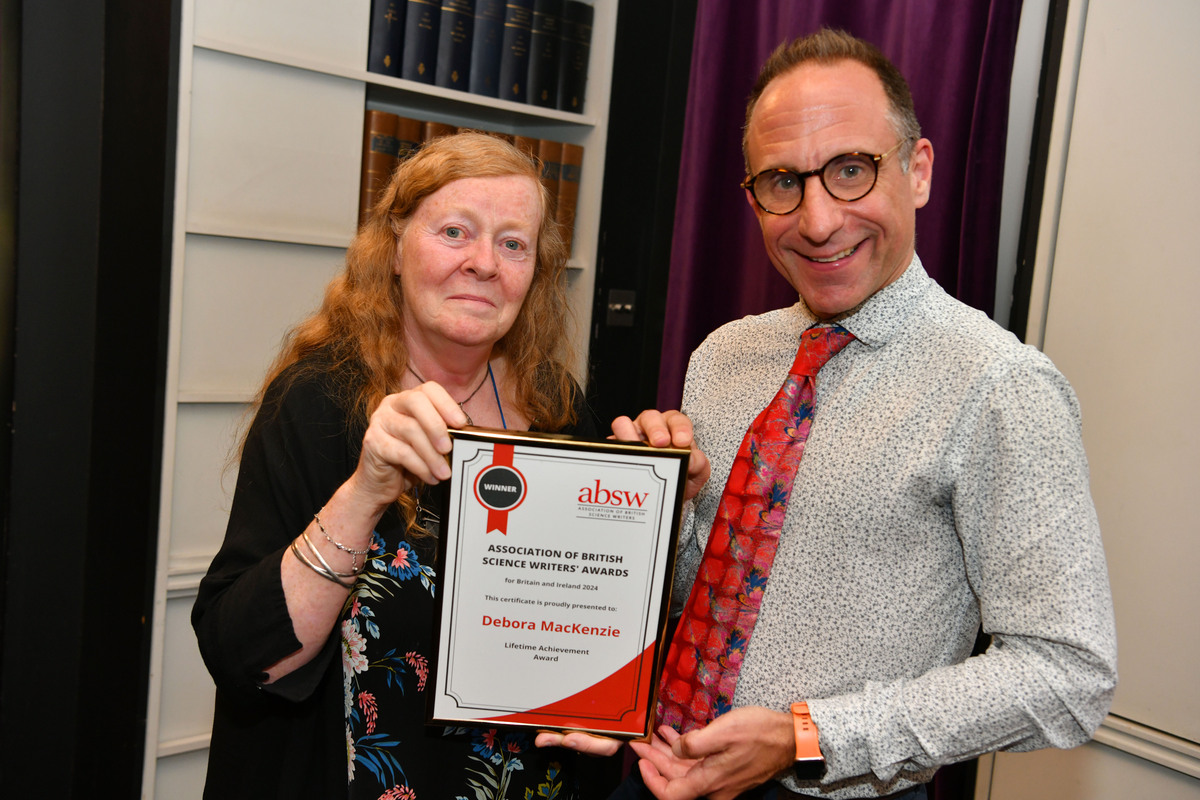
Lifetime Achievement Award - an award to recognise contributions in leadership and service to science journalism or science writing
Awarded to Debora MacKenzie, freelance writer
In his nominating statement ABSW Chair Andy Extance said: Debora's contribution on pandemic reporting, in particular in forewarning about covid-19 and holding governments to account for their failures in responding to it, is a journalistic achievement worthy of this award.
After postgraduate work in scientific research and freelancing for a range of newspapers and magazines, Debora worked almost exclusively for New Scientist, the British scientific weekly, for 38 years, covering a wide variety of subjects. She then switched to books. "Covid 19: the pandemic that never should have happened and how to stop the next one" (Hachette) appeared at the height of the first wave of Covid in July, 2020; an expanded version, "Stopping the next pandemic", appeared in 2021. In addition she occasionally writes for other publications and scientific conferences. She specialises in biomedical and social issues, especially infectious disease, food and agriculture, arms control, the role of complexity in political and social development, and the risk of collapse. She has written thousands of news stories, opinion and in-depth feature articles during her career. Many were exclusive. Some won awards. A few even managed to change some small bit of the world that needed the spotlight of responsible journalism. She plans to continue trying to do that.
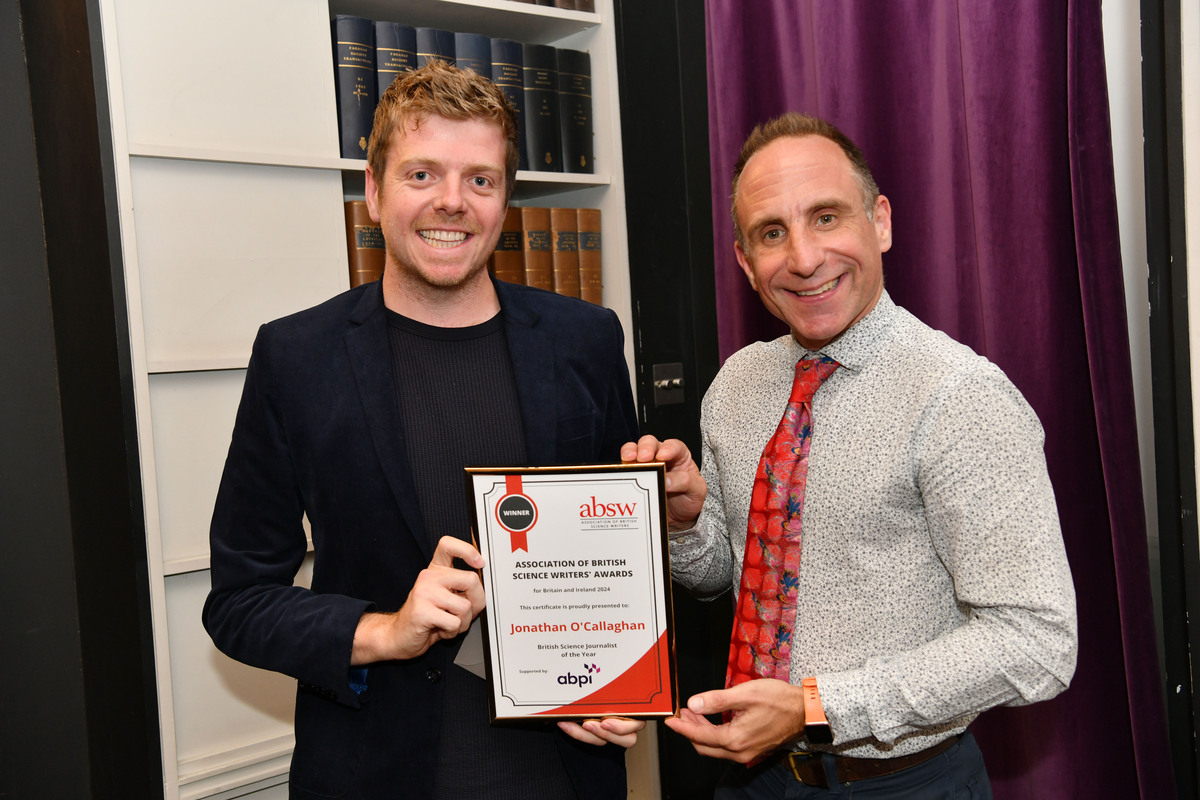
British Science Journalist of the Year
Jonathan O'Callaghan, Freelance
A Cow, a Camel and a Finch Exploded in Space. What Is Going On?, The New York Times (Jul 19, 2023)
A fiery end? How the ISS will end its life in orbit, BBC Future (May 3, 2023)
We are finally closing in on the cosmic origins of the “OMG particle” New Scientist (May 30, 2023)
Our judges say: “Their approach ‘shook things up’ and showcased that there are many ways to impactfully and engagingly share science stories across a range of media outlets. Unafraid to tackle every space topic across astronomy, astrophysics and space exploration."
The winner of this award is automatically entered into the European Science Journalist of the Year award as the British entrant
With thanks to The Association of the British Pharmaceutical Industry who support this award.
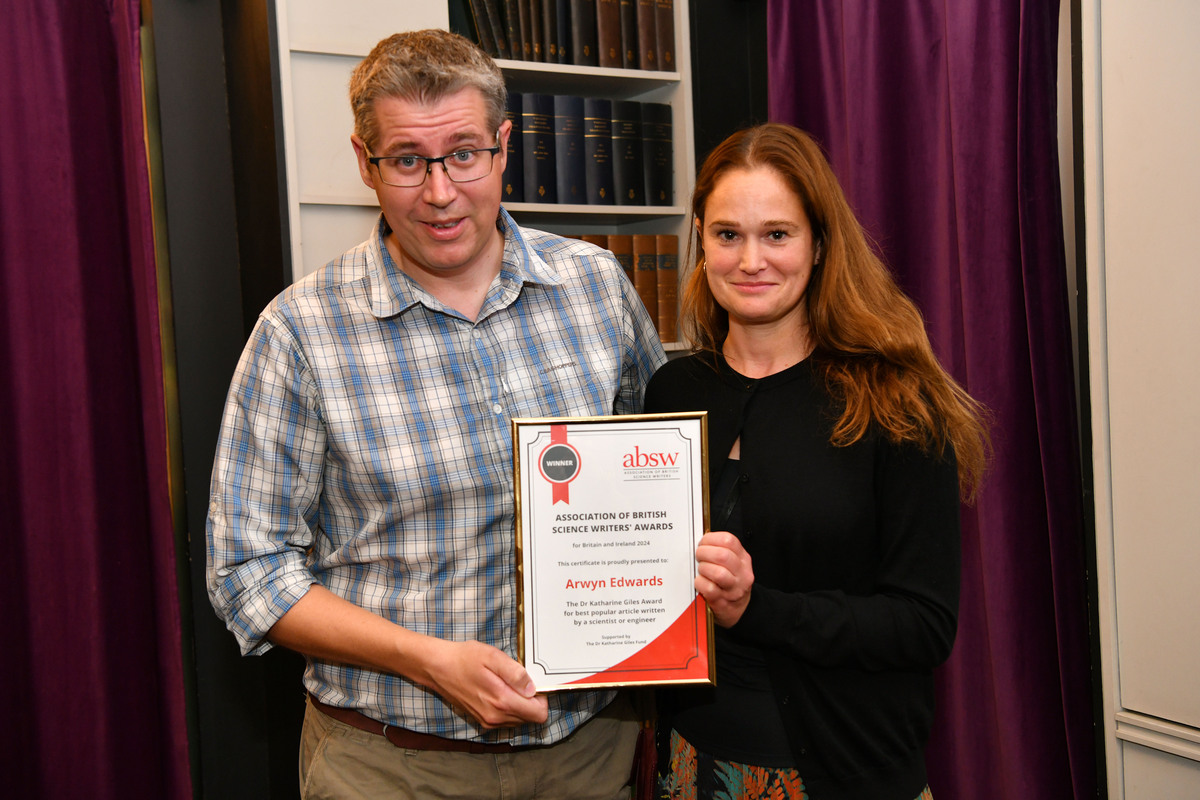
Dr Katharine Giles Award for best popular article written by a scientist or engineer
Pictured (from left): Arwyn Edwards and Nikki Giles, sister of the late scientist and communicator Dr Katharine Giles
Arwyn Edwards, Reader in Biosciences, Aberystwyth University
The melting Arctic is a crime scene. The microbes I study have long warned us of this catastrophe – but they are also driving it, The Conversation (Jun 23, 2023)
Our judges say: “Humorous, and at times nerve-wracking (including the author's near-death experience in a crevasse), keeping the reader engaged and interested right to the very end.”
With thanks to the Dr Katharine Giles Fund that supports this award.
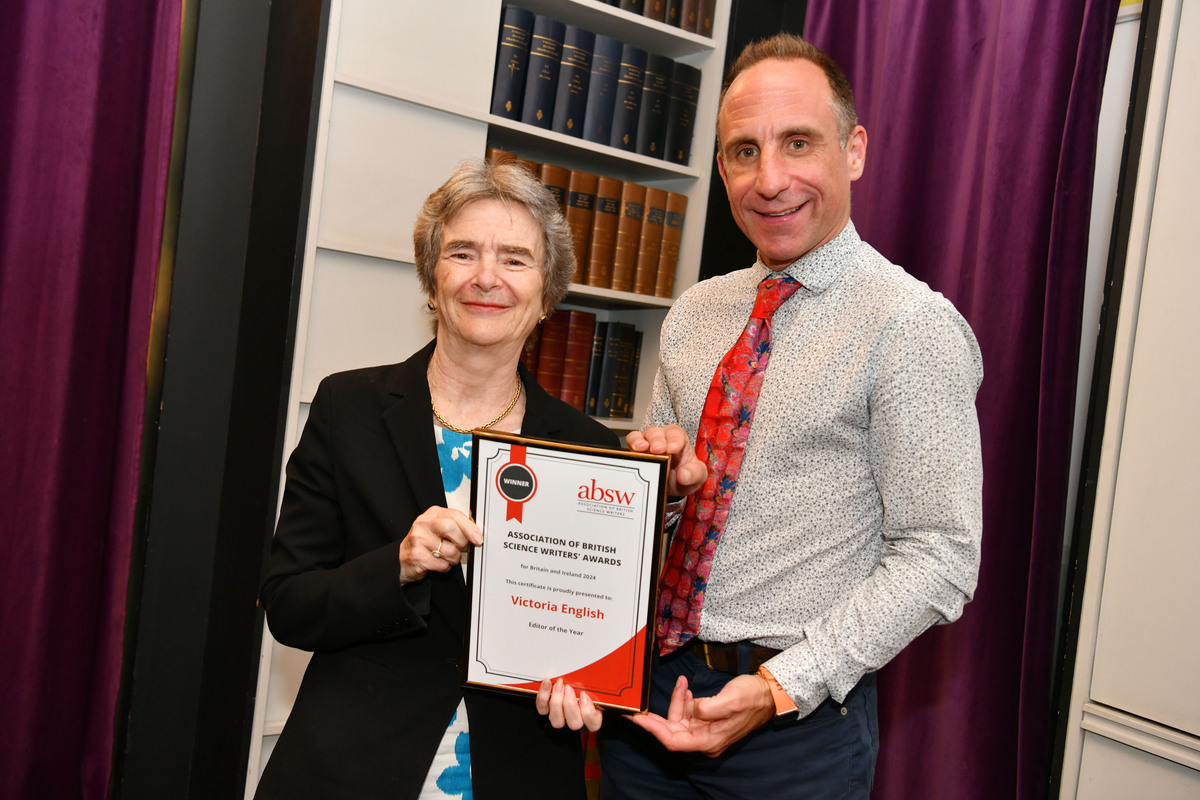
Editor of the Year
Victoria English, Editor, MedNous (a publication of Evernow Publishing Ltd)
Setting the pace in radiopharmaceutical development, MedNous (May 24, 2023)
Grey Wolf to test strategy for creating novel antigens, MedNous (Feb 15, 2023)
Scaffolding as a strategy for developing protein drugs, MedNous (Oct 16, 2023)
MedNous, Vol 17, No 10. (Nov 28, 2023)
Our judges say: “An Editor who has proven to be different, innovative and unique in their approach.”

Feature of the Year: general audience
Tomas Weber, The inventor who fell in love with his AI, 1843 magazine, The Economist (Apr 4, 2023)
Our judges say: “Great narrative, quirky and appealing to a broad audience.”
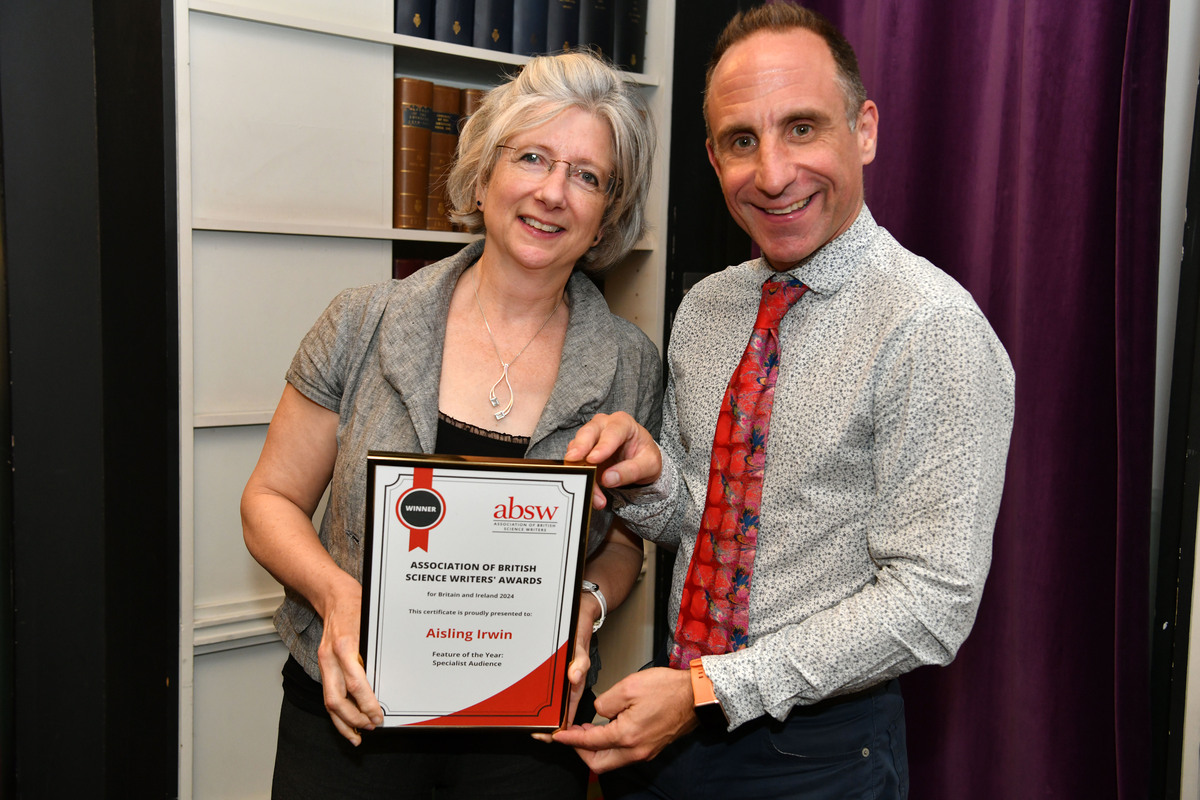
Feature of the Year: specialist audience
Aisling Irwin, Can the Netherlands' artificial islands lead the way to rewilding the planet?, Nature (Apr 26, 2023)
Our judges say: “A highly evocative article exploring an innovative plan to breathe new life into a dying lake.”
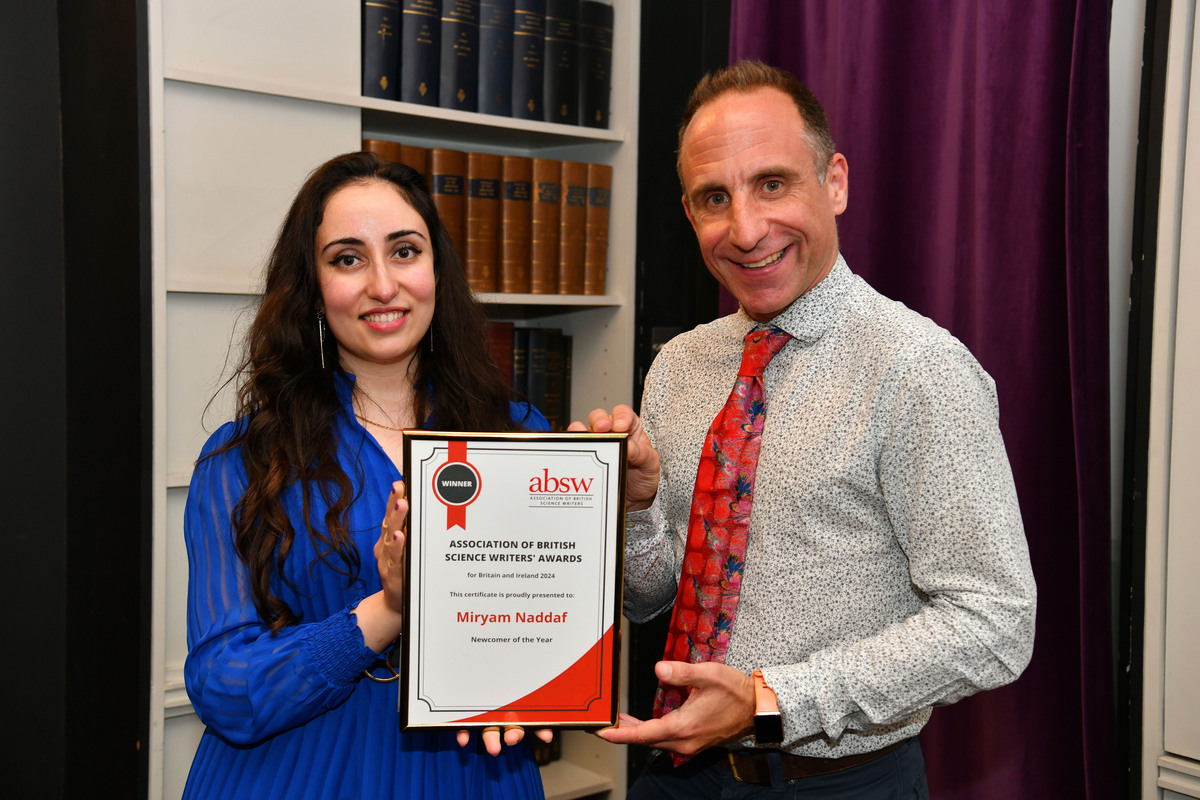
Newcomer of the Year
Miryam Naddaf, Retained Correspondent, Nature
One MRI for 4.7 million people: the battle to treat Syria’s earthquake survivors, Nature (Feb 27, 2023)
‘Armed groups entered the lab’: Sudan’s researchers flee violent military conflict, Nature (Apr 28, 2023)
Europe spent €600 million to recreate the human brain in a computer. How did it go?, Nature (Aug 22, 2023)
Our judges say: “She shows an ability to write gripping stories regardless of length, with a clear commitment to elevating underrepresented voices in her work.”
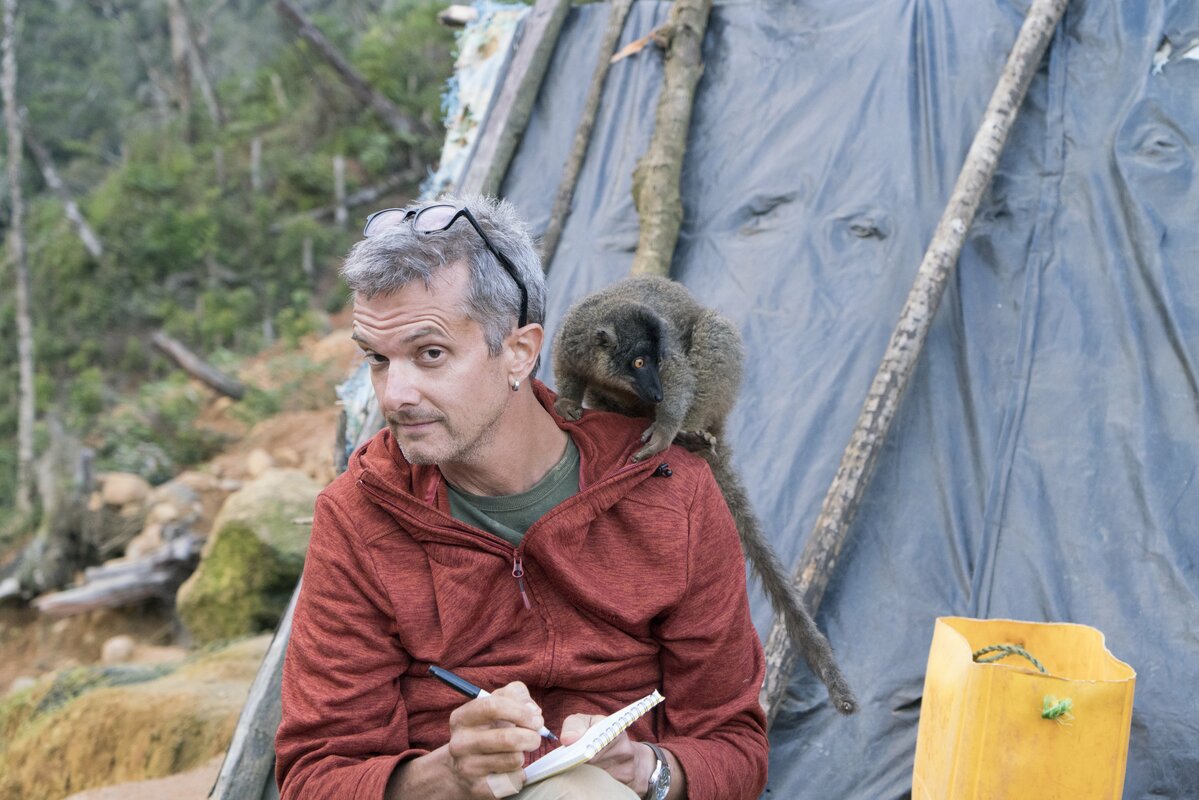
News Analysis or Explanatory Reporting
Paul Tullis, Nitrogen wars: the Dutch farmers’ revolt that turned a nation upside-down, The Guardian (Nov 16, 2023)
Our judges say: “A piece that elegantly weaves many explanatory strands together, social, political and scientific, in a way that is hard to bring off convincingly.”
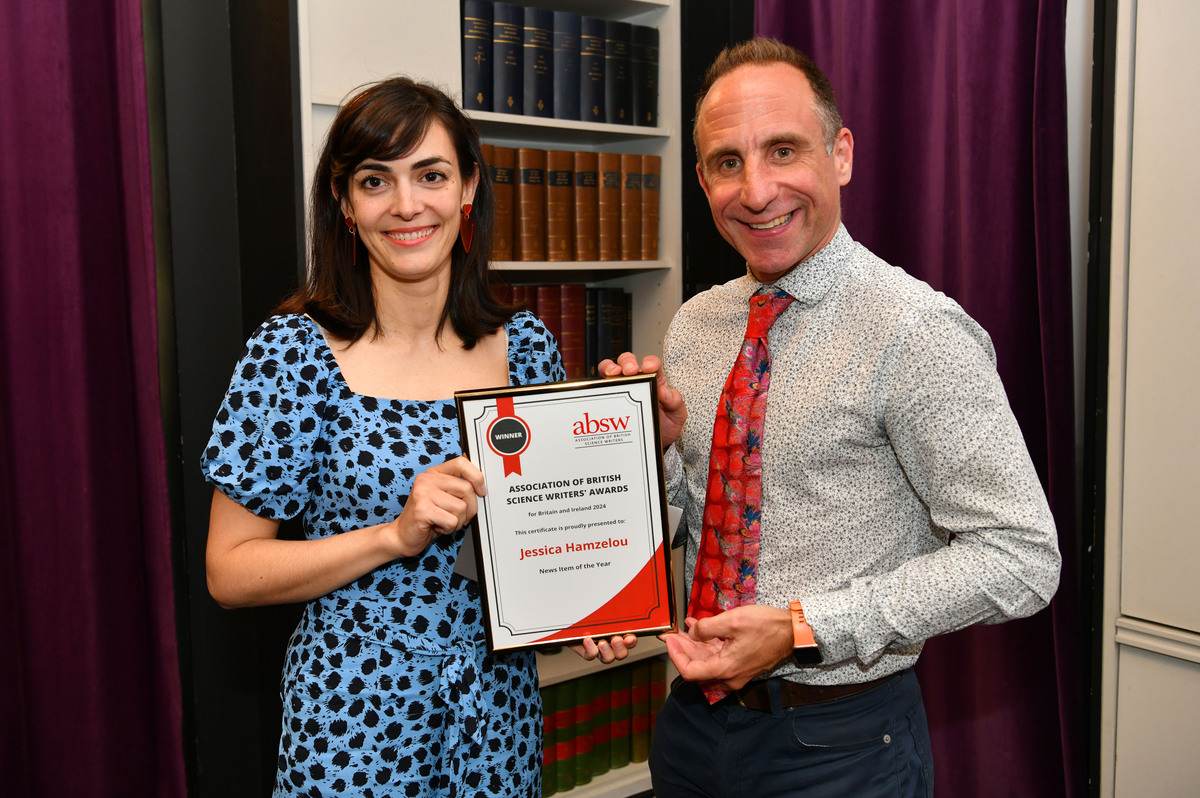
News Item of the Year
Jessica Hamzelou, Three-parent baby technique could create babies at risk of severe disease, MIT Technology Review (Mar 2, 2023)
Our judges say: “This is a brilliantly reported story that broke the news of a potential flaw to the high profile three-parent baby technique. The story is really well researched and clearly explains the complicated science underpinning the technique and the potential health implications for affected individuals.”
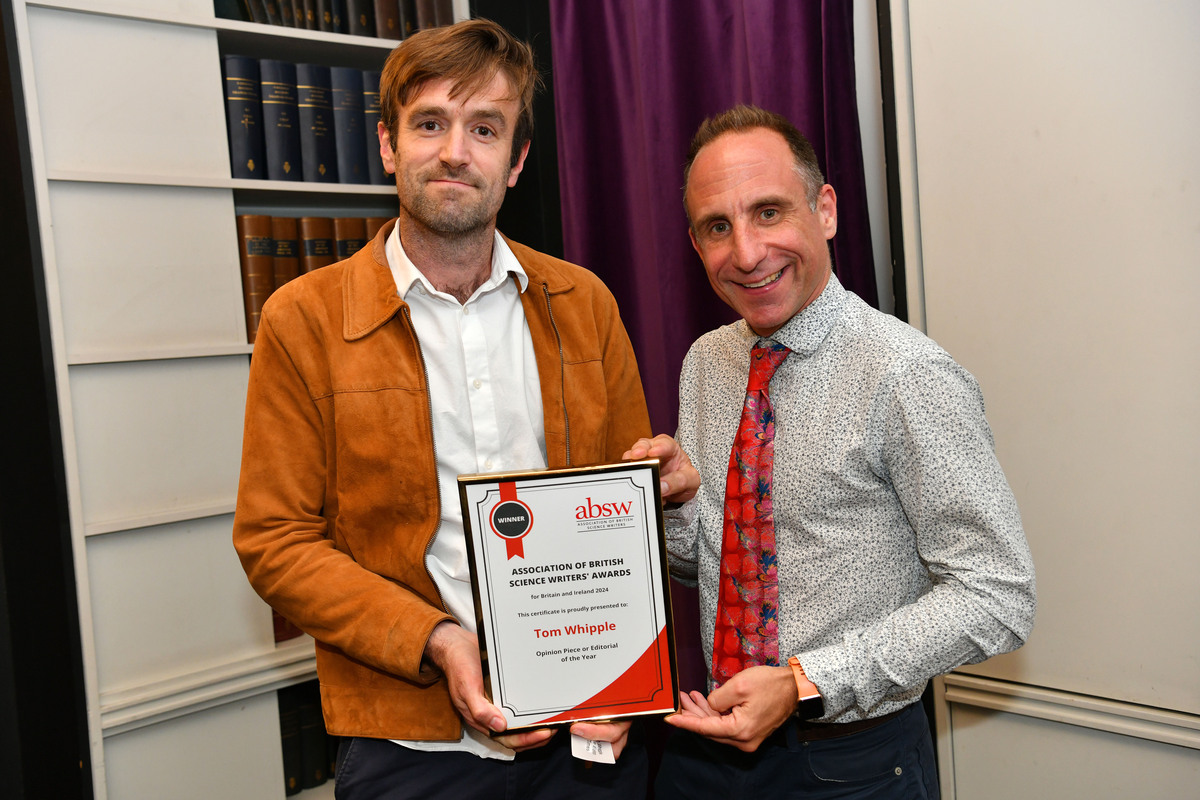
Opinion Piece or Editorial of the Year
Tom Whipple, The Lessons of Lockdown, The Times (Mar 20, 2023)
Our judges say: “The chain of argument runs deftly up & down the ladder of specificity from the detailed to the lofty covering a lot of ground by wearing his learning lightly. He draws the reader into something new, pithy and memorable about a subject where achieving that is almost impossible.”
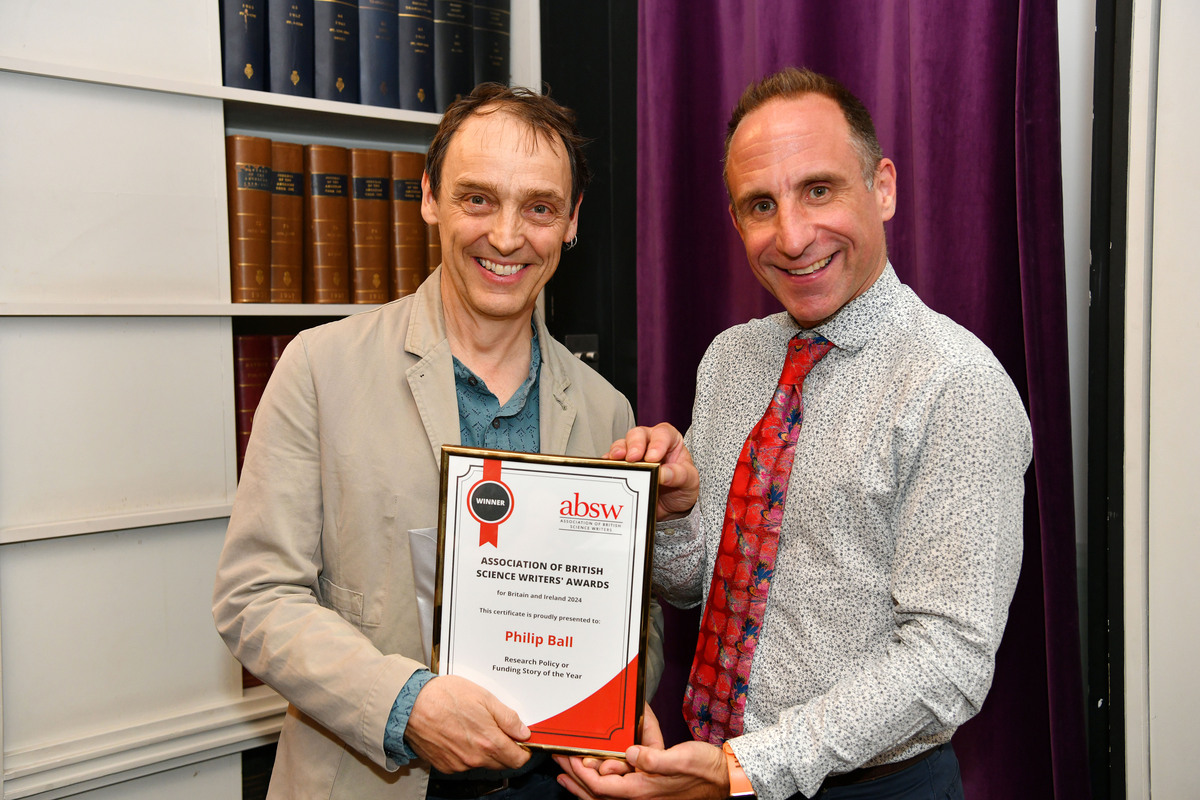
Research Policy or Funding Story of the
Year
Philip Ball, How to regulate human-embryo science, Nature (May 11, 2023)
Our judges say: “Excellent overview of the challenge of keeping up with legislation in a fast-paced field.”
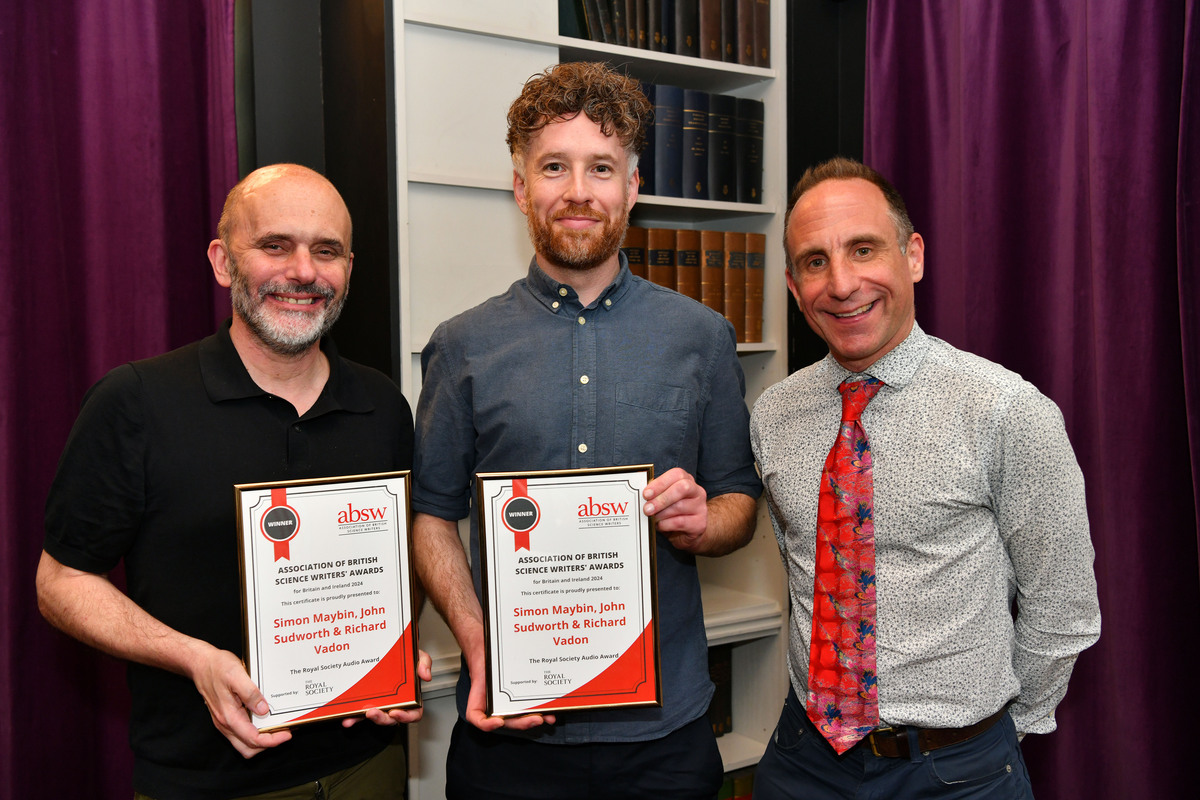
Royal Society Audio Award
Picture (from left): Richard Vaadon and Simon Maybin, next to Andy Extance, ABSW chair
Simon Maybin, John Sudworth & Richard Vadon, Fever: the Hunt for Covid's Origin, BBC Radio 4 (May 30, 2023)
Our judges say: “Thrilling. Excellent investigative journalism. Kept up the pace (in this and the rest of the series).”
With thanks to the Royal Society that supports this award.
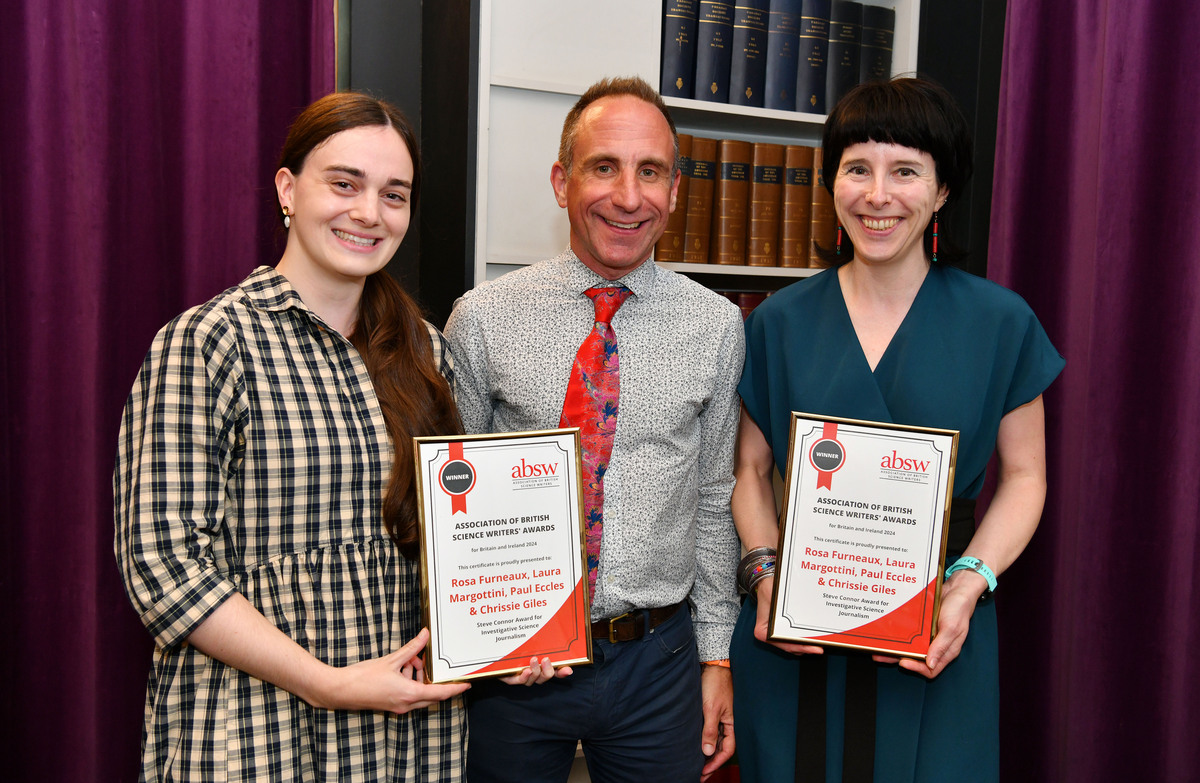
Steve Connor Award for Investigative Science Journalism
Pictured: Rosa Furneaux (on the left) and Chrissie Giles (on the right), with Andy Extance (in the middle), ABSW chair
Rosa Furneaux, Laura Margottini, Paul Eccles & Chrissie Giles, The drug was meant to save children’s lives. Instead, they’re dying, The Bureau of Investigative Journalism (Jan 25, 2023)
Our judges say: “Addressing a critical but neglected issue. The reporting was dogged and the writing sparkled. Like all great investigations, the piece has been a catalyst for change.”
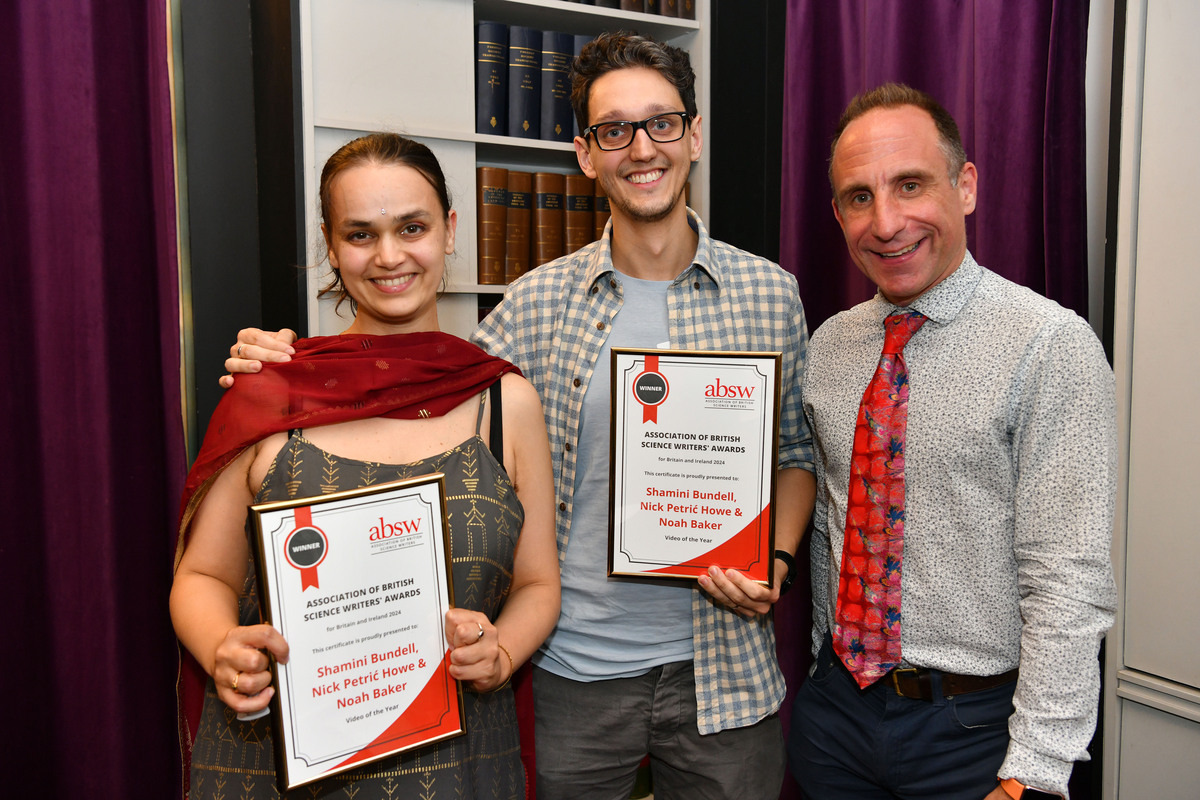
Video of the Year Award
Picture (from left): Shamini Bundell and Nick Petrić Howe, with Andy Extance, ABSW chair
Shamini Bundell, Nick Petrić Howe & Noah Baker, How would a starfish wear trousers? Science has an answer, YouTube, Nature.com, Social Media (Nov 1, 2023)
Our judges say: “A highly creative and imaginative video that used the medium to make esoteric research fascinating and eye-catching.”





